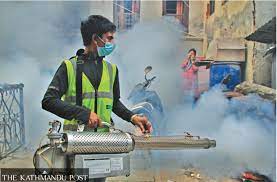
The most dangerous dengue virus, DENV-2 i.e. D2, has entered Haryana and causing menace. This dengue virus has been found in the blood tests of people in many districts. The total number of dengue-infected people in the state has now crossed 5000. The situation is getting worse in 7 districts.
The most affected among these is Charkhi Dadri, where dengue infection has been confirmed in 557 people. There are 388 dengue-infected people in Panchkula, 383 in Ambala, 375 in Yamunanagar, 357 in Rewari, 357 in Hisar and 295 in Jhajjar.
In view of the situation, the Health Department has started the work of mapping the hot spots of the districts. After this, special focus will be given to these places.
Major traces of DENV-2 i.e. D2 have been found in the samples sent by the Health Department. Although the types of dengue virus include DENV-1, DENV-2, DENV-3 and DENV-4, but according to health experts, D2 is the most dangerous virus. In this, the effect of this virus remains even after the patient recovers, in such a situation more precautions become necessary for the patient.
Doctors and experts in the health department believe that there are still 15 more days of danger. Dengue will remain at its peak till the first week of November. Dengue cases will increase. The reason behind this is that this environment is most suitable for dengue mosquitoes to breed. This situation will remain the same until the temperature drops. Dengue season ends after Diwali in the month of November. Most cases of dengue are reported in the last days of travel.
Doctors have advised to wear shoes, socks and full-sleeved clothes. Dengue mosquito bites during the day, observe a dry day at home once a week and check around your house or shop to see if any utensils, waste items or pits are filled with water.















